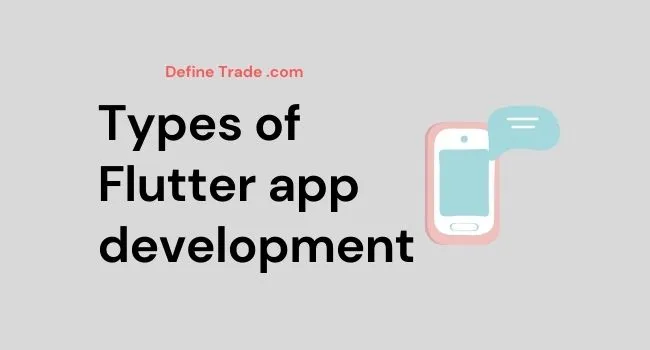Flutter App Development Types | Advantages | Companies

Flutter app development is the process of creating flutter applications using the flutter SDK. Flutter is a new mobile development platform that uses the Dart programming language. It offers many advantages over other mobile development platforms, including high performance, cross-platform compatibility, and fast development cycles.
If you’re interested in learning flutter app development, there are many resources available online. The flutter website has a variety of tutorials and resources, and there are also many video courses available on sites like Udemy and Lynda.com.
Flutter is still in beta, so be aware that the platform is still evolving and may change significantly in the future. However, if you’re looking for a fast, cross-platform alternative to traditional mobile development platforms, flutter is definitely worth checking out.

Types of flutter app development
There are two main types of flutter app development:
- Native flutter app development: In native flutter app development, you use the flutter SDK to develop your app. This gives you access to all of the flutter widgets and allows you to compile your code directly to native code for iOS and Android.
- Hybrid flutter app development: In hybrid flutter app development, you use the flutter SDK to develop your app, but you also use other mobile development platforms, such as Cordova or Ionic. This allows you to reuse code from other platforms and compile your flutter code to run on those platforms.
Advantages of flutter app development
There are many advantages to flutter app development:
- Cross-platform compatibility: Flutter apps can be compiled to run on both iOS and Android devices. It’s an advanced technology.
- High performance: Flutter is built using the Dart programming language, which offers high performance and fast compile times.
- Fast development cycles: With a flutter, you can build and deploy apps quickly and easily.
- Rich widget library: flutter comes with a rich widget library that allows you to create sophisticated user interfaces.
- Support for Google services: flutter integrates well with Google services, including Firebase and AdMob. Check Mobile spy Software as well.
Disadvantages of flutter app development
There are also some potential disadvantages to flutter app development:
- Beta status: flutter is still in beta, so it may change significantly in the future. Be aware that some features may be unstable or not fully supported.
- Limited documentation: flutter has limited documentation at this time, so it can be difficult to find information on specific topics.
- Limited third-party libraries: flutter has a limited selection of third-party libraries compared to other mobile development platforms.
If you’re interested in flutter app development, there are many resources available online to help you get started. However, be sure to stay up-to-date on the latest flutter news and updates, as the platform is still evolving. Thanks for reading!
